#Kevin O'Neill
Text
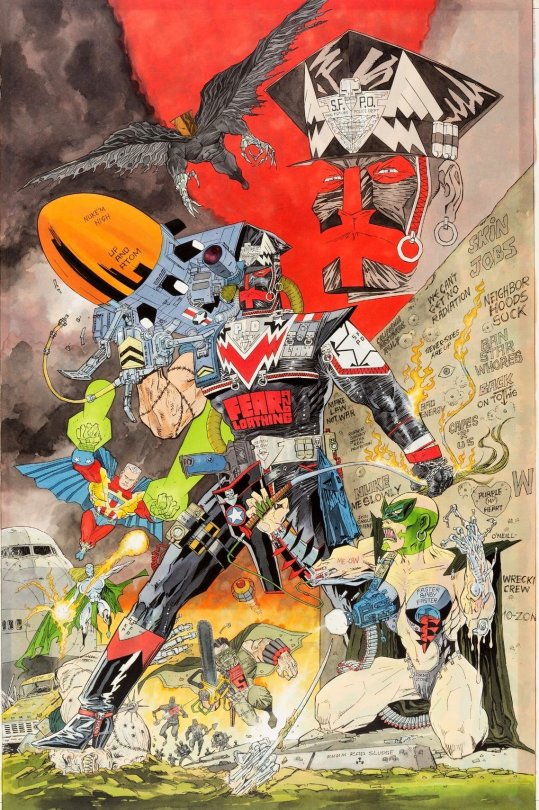
Marshall Law
Art by Kevin O'Neill
179 notes
·
View notes
Note
I guess it's also time for the annual ask: Thoughts on The League of Extraordinary Gentlemen?
@mirrorfalls asked: Perhaps it's time to touch the elephant in the room: thoughts on League of Extraordinary Gentlemen?
anonymous asked: Any thoughts on Moore's LOEG?
anonymous asked: any advice on how to do a fictional character mashup story ala chimera brigade, league, etc?
anonymous asked: you wrote a bit on the wold newton universe and the chimera brigade, any thoughts on league of extraordinary gentleman?
(TW: sexual assault, also a whole lot of racism)
(clip from Anti-Spook Squad by Doctor Lalve)
Let it never be said I don't love or do anything for you people because Jesus Christ what an ordeal.
It was pretty inevitable that I'd eventually have to talk about LOEG given the, niche, I made for myself here, and given I'd read and touched on all these other works that either inspired it or were inspired by it, like the Wold Newton Universe, The Chimera Brigade, Tales of the Shadowmen and etc. I'd read through plenty of different LOEG takes and fics, it's an idea that has a lot of appeal on it's own and is easy to flirt with, if not so easy to pull off.
One thing to put upfront: Kevin O'Neil was a brilliant, one-of-a-kind creator and his work here is great, it's the one thing almost unimpeachably great about the whole thing except when he's asked to draw racist caricatures, which he does quite a bit, we'll get into those. I love the collaboration between Moore and O'Neil and I frequently enjoy the little tidbits where they show up as themselves within the supplemental material. O'Neil does a lot of heavy lifting in these even at their worst, in fact especially at their worst. This comic is a legitimately impressive achievement, and I don't regret reading it, if nothing else I think it was a hell of a wake-up call in regards to all of it's warts I may have been overlooking or replicating in my work or that of others.

I'm gonna break it down by going through the individual installments:
Volume 1: One of the nicest things there is to League is that it only keeps getting better, in the sense that it starts off on the worst foot and it gets better by virtue of not really being able to get worse (yes, even with the Golleywog and Harry Potter sections and whatever). From the moment you open the book it takes about six pages for Mina to be assaulted by Brute Arab Rapist Hordes that Quatermain and Nemo have to gun down, and that pretty much sets the stage on what to expect. Volume 1 is where the series has yet to jump off the deep end in tackling all of fiction, being a more grounded adventure story based on it's premise of being a comic book crossover/hero team comprised of Victorian era literary characters. It's LOEG at it's shallowest and most straightforward, and also at it's least impressive. I'm not remotely charmed by much of what's done here, I've seen a million variants of these before and many of those weren't that great either, but their lows weren't as catastrophic.
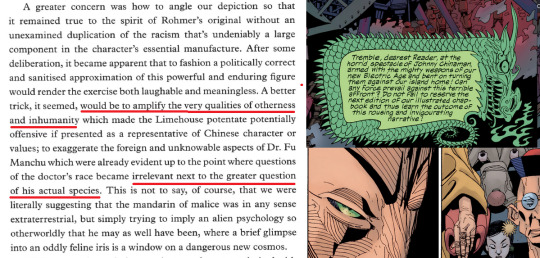
(text comes from an essay Alan Moore wrote regarding his usage of Fu Manchu in the book, which was scanned and sent to me by @mirrorfalls, thank you for that.)
The LOEG's first enemy is Fu Manchu and the book sure likes depicting leering hordes of yellow peril cartoons for our heroes, Mr Hyde in particular, to brutally mow down. Alan Moore thought the genius trick to making Fu Manchu not-racist was to make him as inscrutable and sinister as possible so as to not even appear human, which is a great understanding of how racial caricatures work guys, the "not potentially offensive" shirt has people asking a lot of questions answered by it.
I've heard a lot of claims over the years that LOEG was intended to be a parody, or satire, and that it's using Fu Manchu to make a point as a criticism of the British Empire and imperialism, and I'm gonna make this clear before we move on: LOEG is not a parody or satire, not as a whole. It parodies and satirizes a lot of things, but it is neither parody nor satire. It is very much in love with much of it's subject matter even when it wants to burn it down. LOEG is also a frankly terrible critique of imperialism, it is one of the most imperialist things I've ever read. Part of it is because you can't just recycle problematic garbage and claim it's commentary, especially when you're going out of your way to sensationalize said garbage to be provocative or in many cases add shit that wasn't even there in the first place. Moore asked if anyone else was gonna try and criticize colonialist bigotry in fiction by tripling down on reproducing it as hard as possible, and then didn't wait for an answer before doing it.
Volume 2: Objectively an improvement over the first if only because Fu Manchu isn't there. It's also where the book kinda improves in terms of making a critique. LOEG never really has much to say about it's characters, instead developing them in service of the story or social commentary, and Volume 2 is better at it than the first. Still has a lot of the same problems as 1, it's still a shallow team-up thing that wants to have it's cake and eat it too, it's still the worse version of a concept that's been done many many times before and after. Edward Hyde gets the bulk of the focus here and he was very clearly Moore and O'Neil's favorite character to work on, he gets the most memorable sequences for better or worse. I don't wanna talk about him much and I don't wanna talk about how the book wraps up the Invisible Man's subplot (and how it's not even gonna be the last time sexual violation of a villain is played for oh-so-horrific catharsis), I'd frankly like to stop thinking about it.
The Traveler's Almanac was definitely the most exhausting part to read in full and only not a total waste of time because of Jess Nevins' annotations, which turn this into fairly valuable research material. But so do Wold Newton articles and they're really not the most riveting thing to read, and at least those have a point or constrain themselves to a single topic or character, or are briefer and come with resources on hand or have a point or even can pitch some neat/cool ideas and concepts as a whole. Jess Nevins even did the better version of this in his own WNU chronologies.
Where as this is just complete ass and there's only so many times you can read a variant of "and then we went to this place with horrible cannibal savages and then we went to the other place with beautiful cannibal savages and then we found this utopia and then we found this dystopia and then we referenced this and that and this and that", and it brings me to another point I'd also seen brought up a lot in regards to LOEG: that it's too damn anglocentric to live up to it's premise, too contradictory within itself, and it was always too big of an undertaking to be done the way Moore and O'Neill did it.
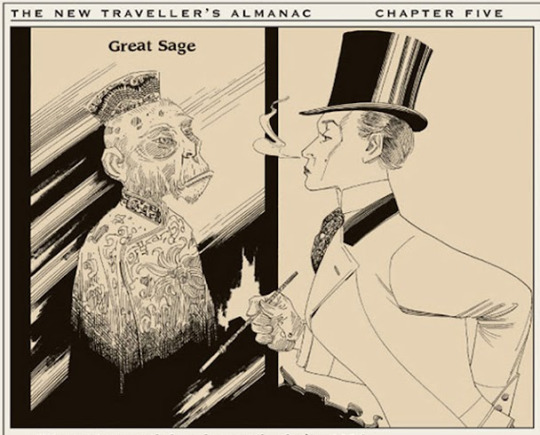
I appreciate Moore trying to make this world feel like a world, in as gigantic all-encompassing a scale as he could possibly account for, with a full world tour and internal chronology. I sure would have liked a big fiction crossover almanac with entire chapters for Africa and China and South America, but we don't get that, because EVERYTHING in them is taken from colonial texts elevated to fact. Literally, entire paragraphs taken from political and colonial texts. All the time spent dicking around with all of those Euro political texts and ancient lore that just had to be paid it's due, and then Orlando goes to China and finds Sun Wukong stuffed as a public freakshow and dismisses his mythos as a bunch of loony (but intriguing and exotic!) hogwash, and Godzilla is later brought up in one line of dialogue to mention how Hugo Hercules killed him offscreen. (I think those might be the only two texts Moore brings up that aren't from European/American sources? There might be others but good luck finding them in the annotations).
Is it unfair to expect Moore to have read all of fiction? Of course it is, but that's what he wants this to be about, he wants this to be about All of Fiction and he wants to write about Africa and China and South America with nothing but colonial texts about those places as reference. He wants to write about how the things he likes are cool and happened and are real while the things he doesn't like don't count or are garbage or didn't happen the way we were told happened. He wants to make a story criticizing racism and misogyny in fiction while writing a text far more racist and misogynistic than most of the things he's bringing up. It's irreconcilable.
Black Dossier: It's constantly jumping between different formats and having to adjust it's prose and visual style accordingly, and it does that fairly well (the beatnik section is completely fucking unreadable though, the prose sections are already a handful to get through as is but that one was too much even for me), although Tempest I think is gonna do it much better. It's got some good parts, it's also got some bad ones. Definitely more readable than the prior two + Almanac.
This is the one with the Gollywog in it and I'm not gonna talk about that thing, I think what's wrong with it is self-explanatory as is. Look, I truly love a lot of Moore's work I've read, and I think a lot of the pushback against Alan Moore painting him as just a cranky old man who hates comics is overblown and shitty and symptomatic of bigger issues with how fans discuss comics and superheroes, but his defense of the Gollywog and his response to the criticisms of LOEG was embarassing and beneath him.
Century: This is the one with Harry Potter and The Lightning Penis in it. To those of you who heard at some point that Alan Moore had done a much-maligned pisstake on Harry Potter and got curious, don't get your hopes up. It's nothing, it's not even that mean, it's just a crude crayon doodle in service of a larger and very dumb critique of modern fiction that could have been anyone. Shame that he bullseyed ahead of the schedule the cultural about-face against Harry Potter without having anything actually criticizing Harry Potter to show for it.
Century does work for me a bit better because it dispenses with the pretense of the series and has it build up to the big awful tragedy it ends on, with all of it's remaining characters miserable immortals and all the fictions having curdled up and gone sour. It works for me only because I have no love whatsoever for this world and so it destroying our characters in the service of the larger narrative about stories and fictional immortality and whatnot is a decision I agree with and I think makes it stronger, even if the social commentary / the story's criticism of modern stories compared to the old ones is frankly absurd. Century I think was perceived as Moore/O'Neill having lost the plot, but to me it feels like the plot (more importantly, the point of it) finally showing up after so much pointless dicking around.
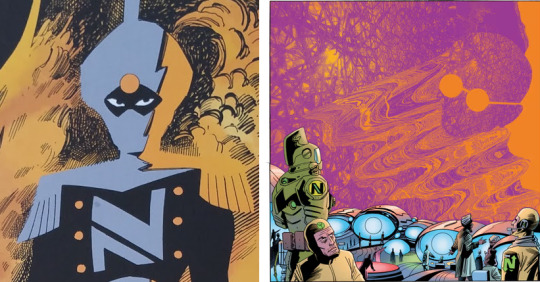
The Nemo trilogy: Easily the one I most enjoyed reading, the Nemo Trilogy is almost like a breather set in between books, just fairly straightforward pulp adventure stories done in far less rancid a fashion than Volume 1. It feels less like a LOEG book and more like one of those LOEG fanfics made by people who like the concept and characters but are dissappointed by the books, so they fill or add or rewrite in the blanks with their own ideas, which is basically every LOEG fanfic ever made. I quite like Janni Dakkar as a character and I'm already a huge mark for Captain Nemo, one of my favorite characters ever, and I was of course very glad to get away from the extremely tiresome Mina/Allan/Orlando trio for a change. Frankly I'd even recommend these as a standalone, they're so disconnected from everything else in LOEG.
If you guys want to read a comic take on Captain Nemo though, read Mobilis by Juni Ba. Infinitely better than anything Moore did with the concept of Nemo, takes far less pages to actually explore the character meaningfully and has far more interesting, more humane and personal things to say and do in general, one of the best things I ever read and a tremendous palette cleanser after LOEG.
Tempest: Tempest is what I'd call the best of the LOEG books, in terms of craft and in terms of achieving what it sets out to do. Namely, it's one of the most elaborate and most artistically impressive slowly unfurling middle fingers I'd ever read, Alan and Kevin in full burning down the house mode throwing everything they've got at the wall, playing around with as many different styles and gags and ideas as they can cram into the great apocalyptic ending of their collaboration. It's a very spiteful work that has a lot of joy and humor to it, fully divested from giving a shit about it's characters and instead recasting them as the bit players they always were in the grand fuckening of humanity at the hands of our fictions.

It gets to burn down everything and also preserve everything in a big dreamy Noah's Ark forever, it plays to every strength the series had, and frankly I barely minded the detours because this thing is all detours. The superhero parody that takes up so much of it isn't really anything funny or insightful or really anything, but there's good bits in it, and I like Alan Moore talking trash about superheroes (of course, it pales in comparison to What Can We Know About Thunderman, but that one is a league of it's own). It's Alan and Kevin's farewell to comics with all the mixed feelings towards it and the industry and the subject matter they both have decades of so much experience with it. It is The End of Everything and I think it ended on the best note it could have ended with.
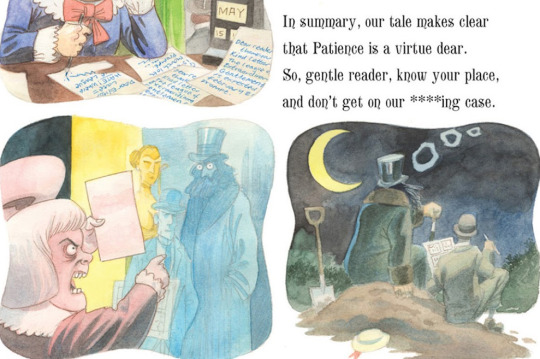
In summary, I think LOEG has a lot of individually cool or neat or even great ideas that I think get lost, because there is so, so much of it, and so much of it is impressively painted sludge. Sometimes it is ingenious, sometimes it is fun, it is never not visually impressive, but it's more frequently dull and grotesquely self-indulgent and far too shallow. It suffers from an almost inescapable side effect of doing this dealing with the fiction he was dealing with without accounting for taste or bothering to reign in his worst impulses, too much to cover and not enough actually being said about it. In truth, much of it doesn't feel much different than reading the wiki summaries for it I had already read forever ago. It is a unique beast taking swings that I'd never seen before that most wouldn't, probably for very good reasons most of the time. It is also guilty of literally everything it's criticizing other works of being and doing, and sometimes it actually provides it's best commentary because of that! It's a complicated thing to tackle and wrap your head around. God knows what Jess Nevins must have gone through to make the annotations for this, as they put it on the Almanac annotations.

I don't consider it wasted time because, I did really enjoy the final two installments, there are good bits scattered across the other books and I learned some good things from it as a whole, but would I recommend it in it's entirety? Unless you're really a huge fan or completionist for it's creators (although reading LOEG really disillusioned me on Moore in a lot of ways, not that this is a bad thing, if anything that's a necessary thing to really try and grasp a creator's body of work) or you're the kind of sicko who'd be in the tank for the whole thing, no, not really.
It is one of the most impressive and accomplished works I've ever read, I will probably come back to it for research purposes, but holy shit am I glad to put it behind me.

#also thank you davidmann for sending me the epilogue#replies tag#loeg#league of extraordinary gentlemen#alan moore#kevin o'neill#abc comics#comics
48 notes
·
View notes
Text

1990 Marshal Law Marvel Epic Comics House Ad
#marshal law#marvel#marvel comics#epic#epic comics#epic comics house ads#marvel comics house ads#pat mills#kevin o'neill#comic ads#print ads#comic house ads#house ads#1990#90s#1990s
47 notes
·
View notes
Text
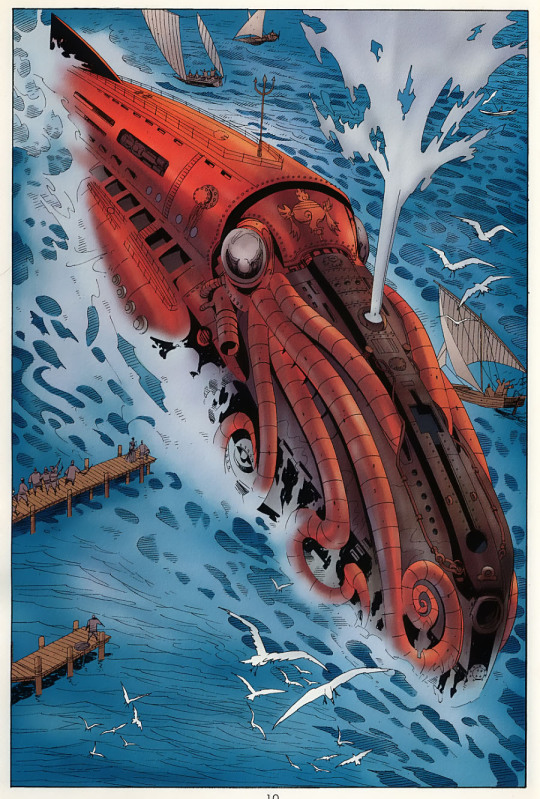
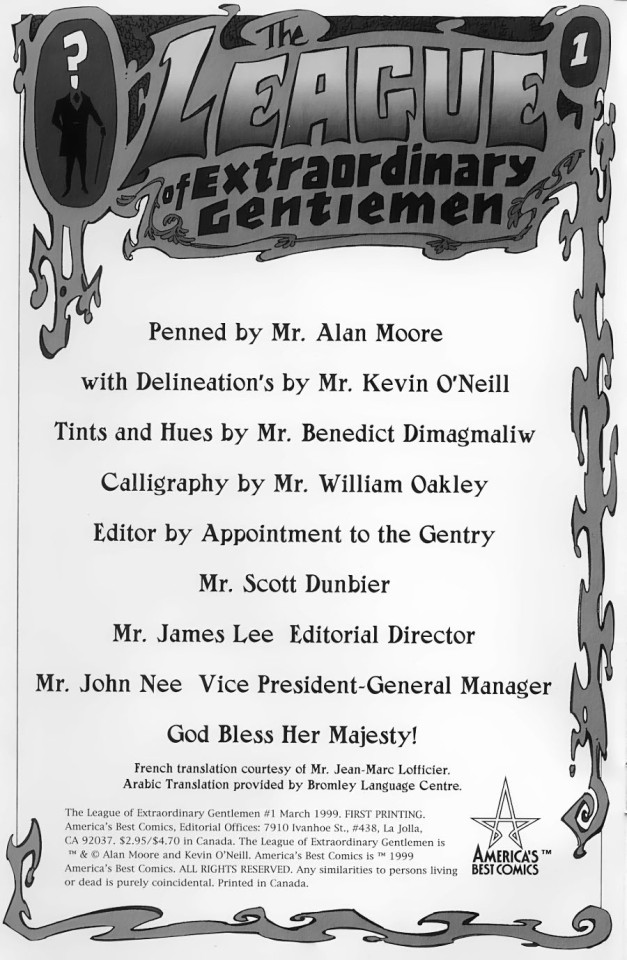
The League of Extraordinary Gentlemen #1
by Alan Moore; Kevin O'Neill; Benedict Dimagmaliw and Wiliam Oakley
27 notes
·
View notes
Text

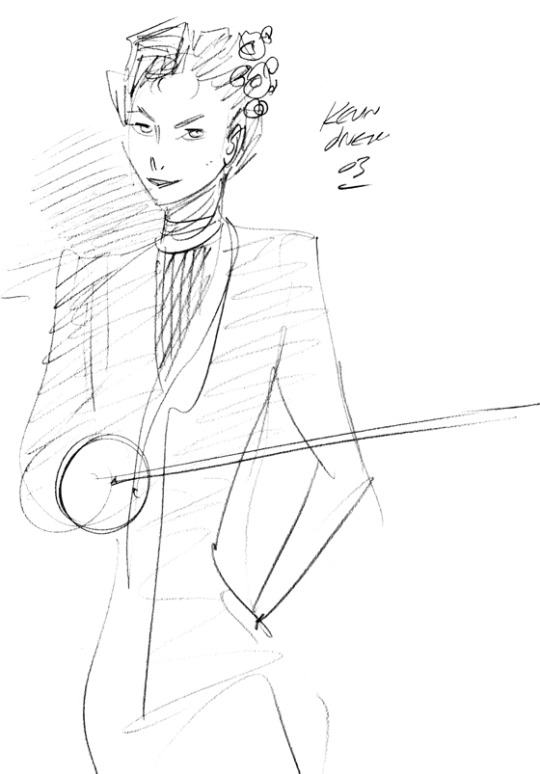
mina murray by kevin o'neill
24 notes
·
View notes
Text

Kevin O'Neill Marshal Law: Cloak of Evil Cover Original Art (Titan Books, 2003)
101 notes
·
View notes
Photo
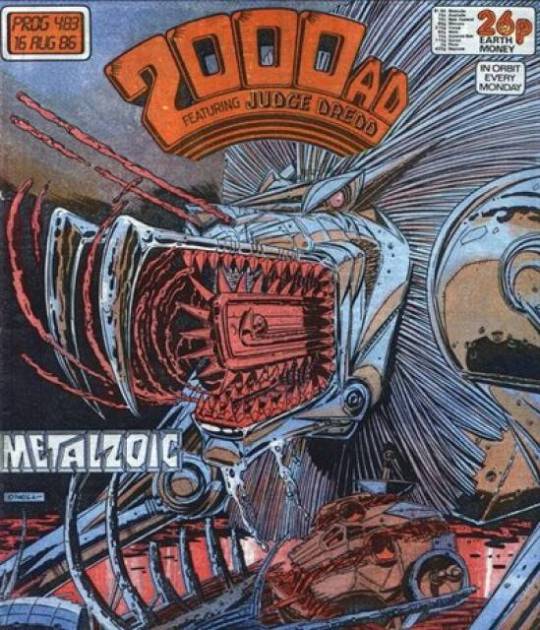
RIP to 80s British comic artist, Kevin O’Neill. His art was always beautiful in a jagged, strange, and threatening way, rather like the last few abstracted and strange Louis Wain cats.
Though many know Kevin O’Neill best for League of Extraordinary Gentlemen. To me, his best work was a 2000 AD strip about a future only inhabited by robot animals, the Metalzoic.
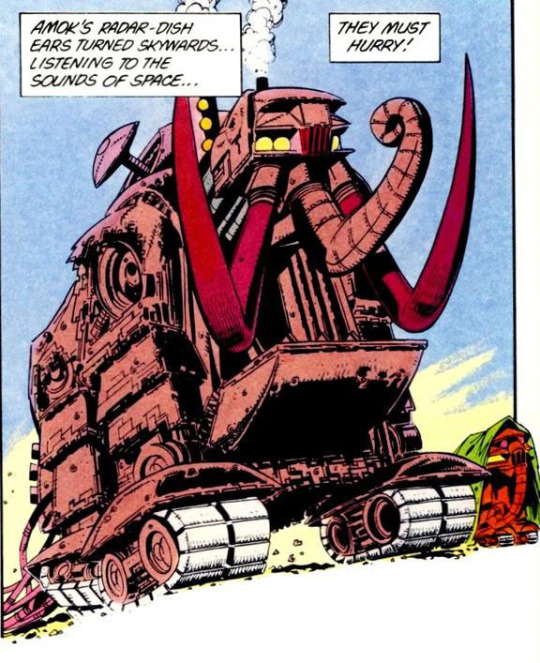
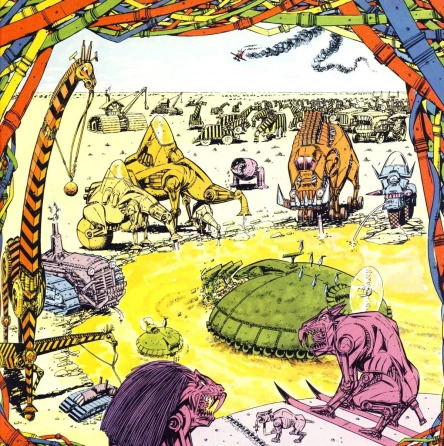
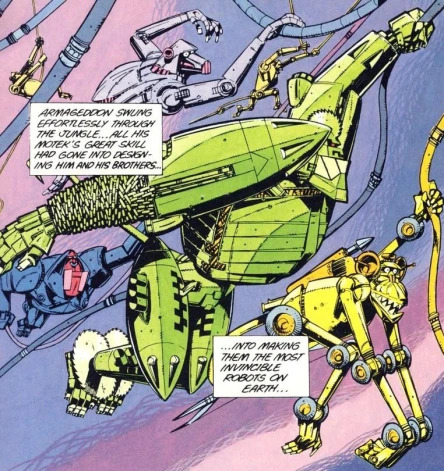
233 notes
·
View notes
Photo
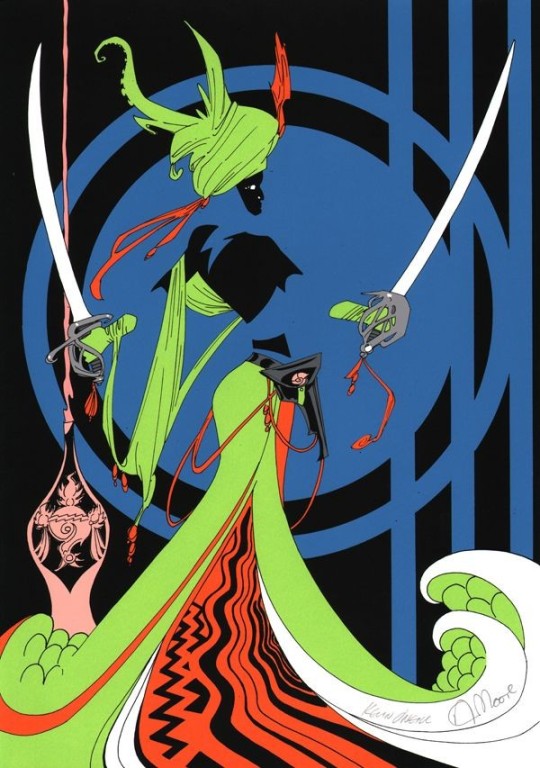
Kevin O'Neill
60 notes
·
View notes
Photo

Kevin O'Neill, "Walter the Wobot Bluepwint", 2000 A.D. #53, Feb 1978.
#science fiction#technology#robotics#comic book#Kevin O'Neill#Walter the Wobot#Judge Dredd#2000 A.D.#UK#1978
219 notes
·
View notes
Text
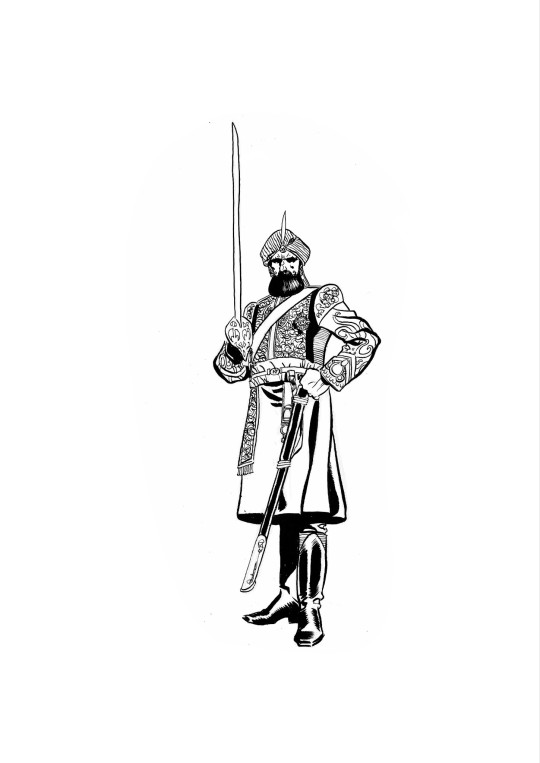
#six fanarts#comic books#comics#art#illustrators on tumblr#captain nemo#the league of extraordinary gentlemen#alan moore#kevin o'neill
40 notes
·
View notes
Text
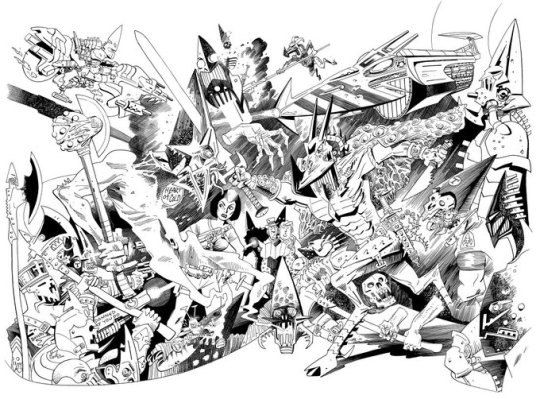
Nemesis the Warlock 40th anniversary poster by Kevin O'Neill
15 notes
·
View notes
Text

Nemesis The Warlock
Art by Kevin O'Neill
232 notes
·
View notes
Text
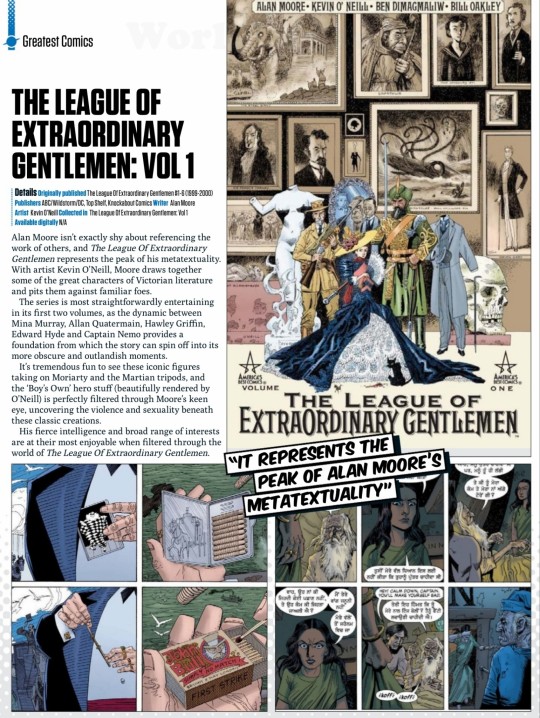
100 all time greatest comics (2014)
#the league of extraordinary gentlemen#america's best comics#dc comics#knockabout comics#top shelf#comic#alan moore#kevin o'neill
24 notes
·
View notes
Text
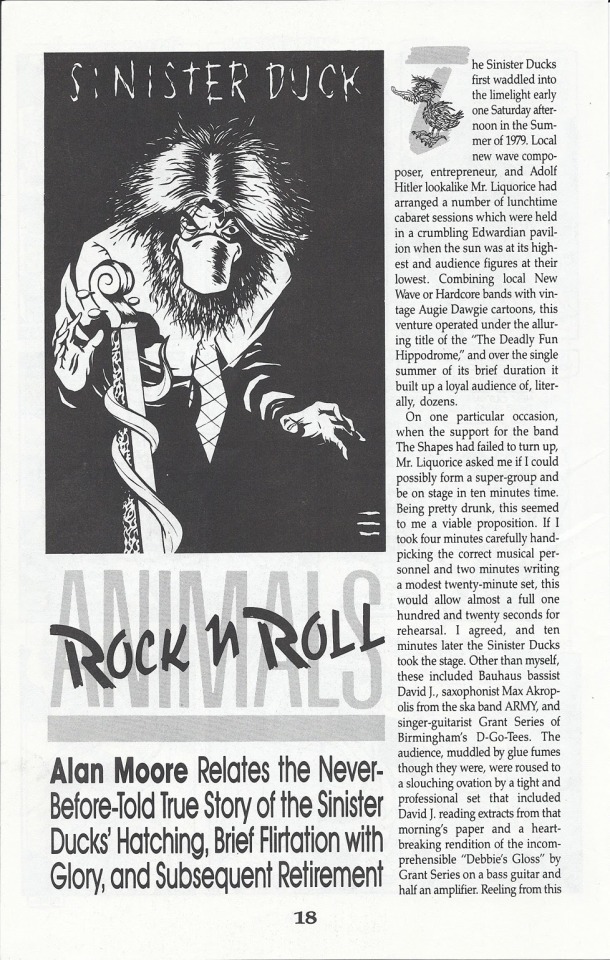
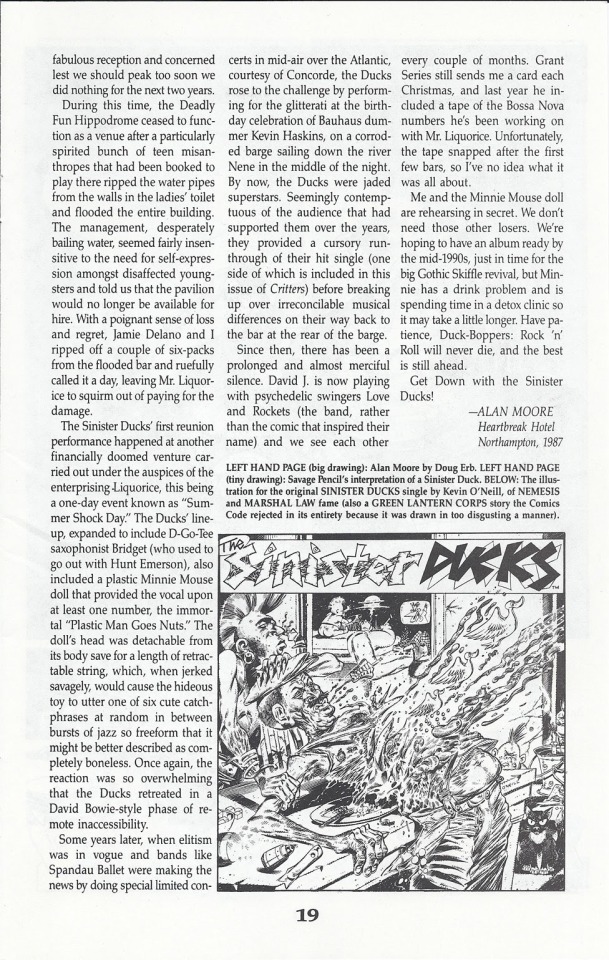
"The True Story of the Rise and Fall of the Sinister Ducks", Critters #22, April 1988, by Alan Moore, illustrations by Doug Erb, Savage Pencil, and Kevin O'Neill
24 notes
·
View notes
Text
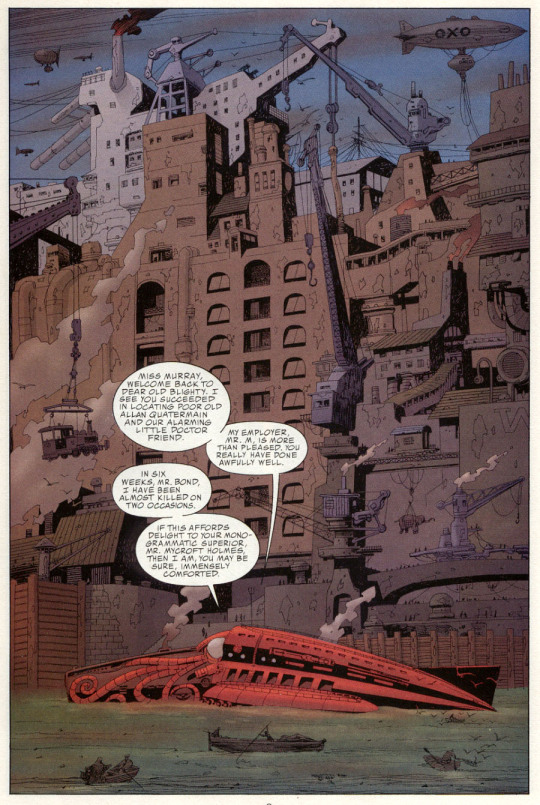

League of Extraordinary Gentlemen Vol.1 #2: Ghosts of Miracles
by Alan Moore; Kevin O'Neill; Benedict Dimagmaliw and Bill Oakley
41 notes
·
View notes
Text
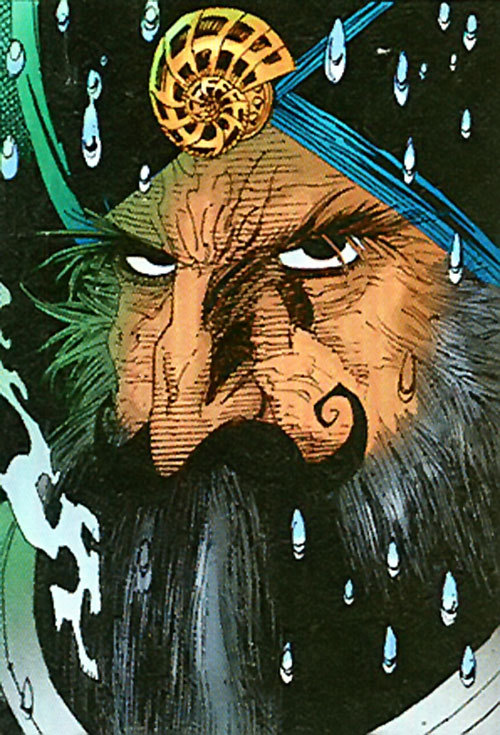
captain nemo by kevin o'neill
18 notes
·
View notes